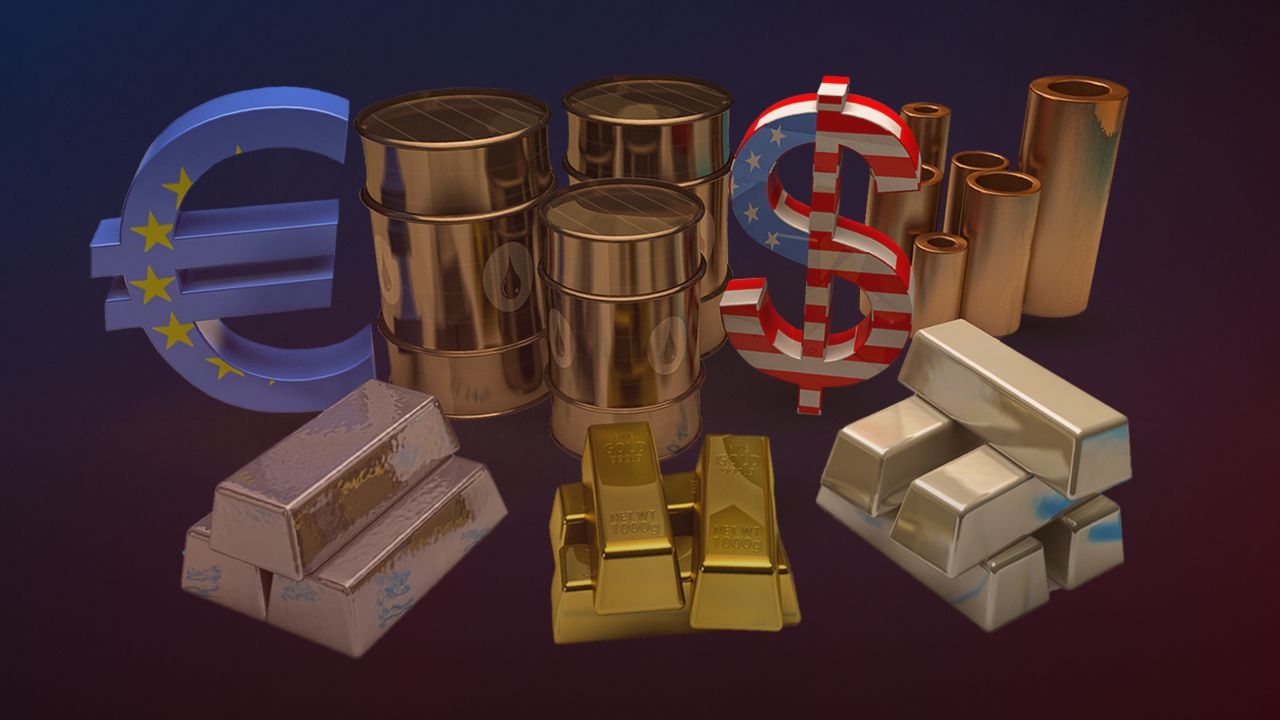With the growing interest in digital assets like cryptocurrencies, gaming artifacts, and stocks, people started forgetting that there exist other types of investments on the market, and they are varied. For instance, investing and trading in commodities, which we will talk about in this article.
📊Most often, trading commodities is done through different commodity exchanges. The commodity exchange is a rather important element of the state economy, with their help traders can visually see the real price of commodities and raw materials, compare it with competitive platforms, and also be somewhat protected against risks.📈 The situation on the market can be unstable because it is influenced by many factors. Trades are carried out with a certain regularity and in a strictly defined place: on a real (in large financial and industrial centers) or a virtual platform. Trading on the exchange provides for the unification of requirements for the terms of transactions and the quality of goods. Trades are conducted based on counter-proposals of the parties and are not influenced by government intervention, with the main source of income being commissions collected from trades.
The main tasks of the exchange include the organization and order of markets for currencies, goods, and capital, simplification of trading processes, equalization of supply and demand to stabilize prices and protect the interests of sellers and buyers from adverse price changes.
Trading on the stock exchange requires special skills and knowledge of the “language” of traders. This can be mastered if you learn from the best and practice constantly.
🌍Commodity markets can be classified both by their geography and by the type of goods that are traded there. A few famous examples of classification by geography include the North American market, African market, Western European market, etc. However, it is more common to classify the markets by the types of goods:
Service markets: scientific inventions, transportation, and transport services, and other services.
Markets for raw materials and semi-finished products: raw materials for industry, fuel materials, precious and non-precious metals, forest and wood products, agricultural products.
Finished goods markets: machinery and equipment, industrial goods market.
What is a commodity trader?
A commodity trader is someone who trades commodities on such exchanges, rather than invests their money in digital assets. Unfortunately, sometimes people are scared of trading commodities as this can be a relatively unfamiliar market, especially considering the current spike of interest in crypto and stocks📈
So where do you get started? First of all, it is always a good idea to gain some knowledge about the subject before going all in.Trading could be quite challenging without the understanding of the market, without the ability to conduct technical and fundamental analysis, because a trader with such skills might have more chances to succeed. This can help you to competently manage capital and create your trading system, as well as to optimize it whenever you need to do so. In addition, it is important to choose the right exchange and learn how to use the trading terminal software – this is also a part of doing your research before starting trading.
❗️In addition to knowing the basics of trading, a trader is often said to need a few personal characteristics, some of which include being emotionally stable, independent, disciplined, able to work in a team and make quick decisions, as well as willing to take justifiable risks. Trading is also a relatively social area of expertise, so communication skills might be helpful too – you might want to get helpful tips and tricks from those around you, which can be done through communities, social media, and other means of communication online and offline.
How to invest in commodities
In general, deals on commodity exchanges can be divided into 2 groups: real goods transactions and urgent transactions. The former ones require supply, while the latter deals are, in fact, speculative and can be performed with almost anything. Futures and options are a few examples of urgent deals.
The most popular type of transaction on the commodity exchange is futures. Market participants enter into transactions in the form of futures contracts for the supply of various goods. Futures are traded through an open competitive auction. Futures contract is the right to buy or sell a specific asset for a specified period at a preset price. Of course, for the most part, sellers of a futures contract don’t deliver goods, and buyers, in turn, don’t usually take them for real. The process is much simpler- as soon as the agreed contract expires, it is being canceled and the purchase and sale are offset. That is, in fact, the parties to the contract speculatively participate in hedging the risk associated with a change in the price of a commodity under the influence of various factors. Although, of course, there can be cases of physical delivery of “won” commodities, parties need to make a special agreement with each other.
There are two types of agents involved in the futures markets: commercial and institutional users of commodities who hedge their risks; speculators who are solely focused on making a profit from changes in the prices of goods. There are advantages and disadvantages to futures trading in the commodity markets. For instance, the advantages are:
🔴 Commodities in question are real goods, thus it is relatively clear to see the impact of different events on the price of a commodity.
🔴 You can earn higher profits by engaging in leverage, however you can also incur higher losses
🔴 You can set both long and short trades
However, you should keep in mind some disadvantages too:
🔵 Futures tend to have a high degree of volatility, which implies that an inexperienced trader may incur high losses
🔵 Leverage, which in some conditions brings the profits up, can also increase losses
🔵 Commodities can easily be impacted by unforeseen circumstances and unpredictable factors (politics, weather conditions, covid, and the unstable environment in general)
Of course, this article is only a brief introduction to commodities trading and you can always do more research to gain more information. However, we do try to provide you with the basics and give you some understanding, so you can make your judgments into whether you should invest commodities into your trader profile. Working with commodities is a skill, just like with other types of investments.
Best regards, 🌶
The NAGA team



